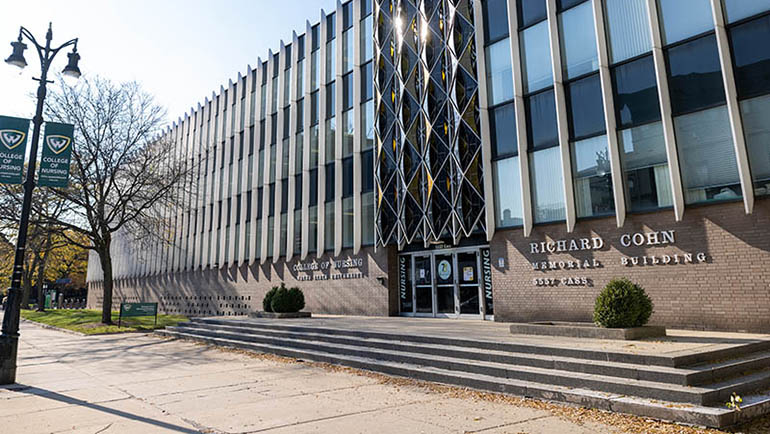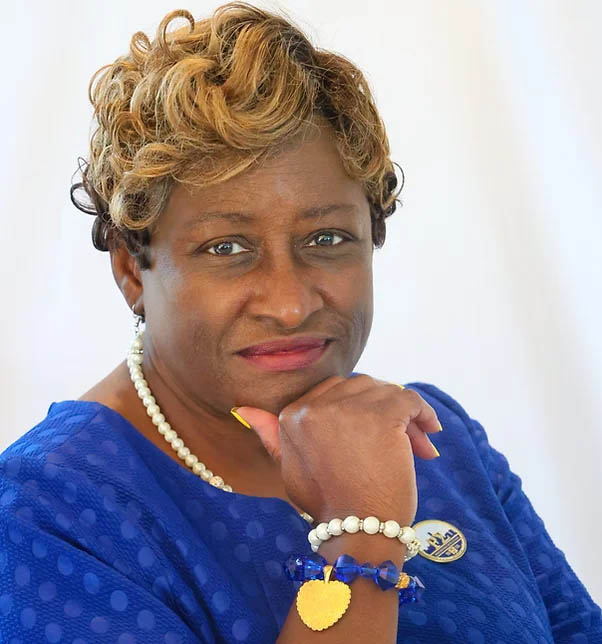
As a veteran clinical supervisor for a mental health program in Macomb County, Wayne State University alumna Mareitta Alston-Williams, Ph.D., has spent the bulk of her career overseeing and developing mental health care therapists, case managers and psychiatrists.
A couple of years ago, however, the trainer became the trainee. After signing up in 2022 for the cutting-edge Mental Health First Aid community outreach effort sponsored by the Wayne State University College of Nursing, Alston-Williams found herself immersed in an intensive program that trained community leaders to teach lay people how to identify mental health and substance abuse challenges among youth and how to temporarily intervene until professional help arrives.

Armed with evidence-based learnings provided by Mental Health First Aid, Alston-Williams and others who received the training — including Wayne State students and faculty — went out into the greater Detroit community to share their lessons through trainings with others. Sessions included early identification of mental health concerns, how to talk to individuals dealing with drug and mental health problems, and how to connect them with professional help.
Between 2022 and 2024, more than 600 individuals — most in metro Detroit but some as far away as the United Kingdom — have been trained virtually in the Mental Health First Aid protocols, providing a significant boost to local communities currently grappling with mental health issues among young people. The effort underscores Wayne State’s commitment to securing grant funding that leads to far-reaching change.
“It helps to be able to see how to reach people that don't have formal training,” said Alston-Williams. “And it helps to understand how easy it is to train individuals without that background to help them understand that they too can be a part of fighting mental health stigmas and providing assistance to those in need.”
Funded through a $1.5-million grant gifted to Wayne State in 2020, the Mental Health First Aid training is part of a broader effort to expand mental health care access and transform the Behavioral Health Intervention workforce. The Nursing Education, Practice, Quality and Retention program of the Health Resources and Services Administration provided the College of Nursing with the grant.

College of Nursing Professor Cynthera McNeill, DNP, who oversaw the grant and led the trainings, hailed the program for its ability to help local groups build the needed capacity to tackle mental health issues in the city.
“Thanks to this grant, we were able to forge genuine partnerships with community-based groups and concerned individuals dedicated to taking on the mental health concerns that burden many families and neighborhoods in the city,” said McNeill. “Rather than just show up and collect research data, we were given the opportunity to provide education and skills that enable community members to take action and serve as a bridge between those dealing with mental health troubles and the services they need.”
McNeill compared the mental health intervention trainings to learning CPR.
College of Nursing Dean Ramona Benkert said the trainings illustrate the college’s commitment to community engagement and the university’s commitment to improving health in Detroit, a key element of WSU’s Prosperity Agenda.
“Providing quality mental health care services and education to Detroit’s most vulnerable communities remains core to the College of Nursing’s overall mission of empowering health in Detroit,” said College of Nursing Dean Ramona Benkert. “The Mental Health First Aid trainings have given hundreds of Detroiters the ability to recognize key signs of mental health difficulties and connect those suffering to the resources and help they need.”
